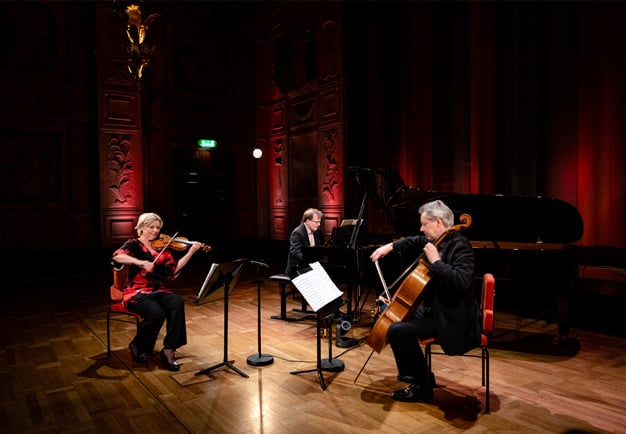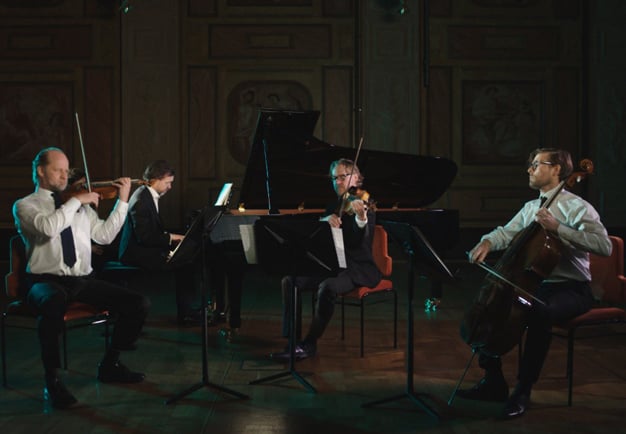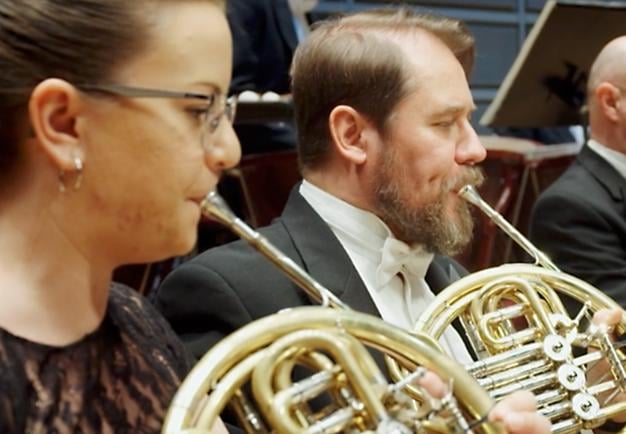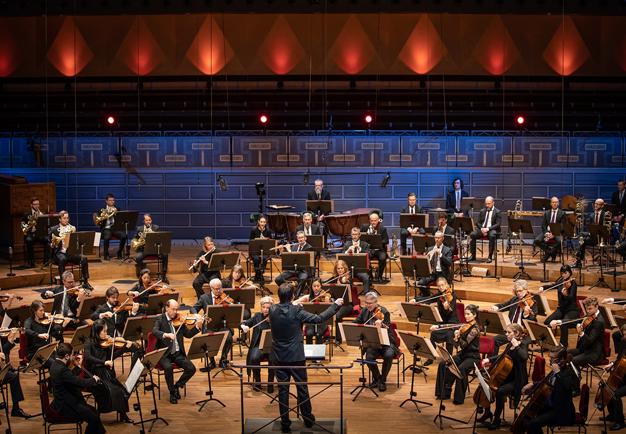Swedish romanticism
Chamber music by Ludvig Norman, Elfrida Andrée, Helena Munktell and Valborg Aulin.
About the video
- Published online 24 February 2021.
- Filmed 12 February 2021.
- The video is approximately one hour and 45 minutes.
- Subtitles in English and Swedish is activated by using the CC control in the video player.
Ludvig Norman had enormous significance to Sweden’s music scene in the latter half of the nineteenth century. He had studied in Leipzig where, among others, Robert Schumann took note of him. In addition to being a composer, he was court conductor and introduced Wagner to Swedish opera audiences.
At the Royal College of Music, he taught composition, instrumentation and score reading. His students included Elfrida Andrée, Helena Munktell and Valborg Aulin, three composers who are now garnering well-deserved attention in our time. While, as their teacher, Norman’s influence can be heard in their work at times, they also composed in their own unique styles. This is particularly evident in the Three Romances for violin and piano by Elfrida Andrée, who was a composer as well as Sweden’s first female cathedral organist.
After studying under Norman, Helena Munktell went to Paris, where she studied composition under Vincent d’Indy. She soon became a member of the Société Nationale de Musique which promoted French music. French traces emerge in her music, as in this piano trio, which – despite its French influence – has a German title: Kleine’s Trio.
Valborg Aulin was a famous figure in Stockholm’s music scene in the late nineteenth century. France made an impression on her as well, and one of her most famous pieces is the graceful, elegant and expressive Quartet in F Major.
-
The music
-
Elfrida Andrée Three Romances for violin and piano
-
Helena Munktell Kleines Trio, version Kiyo Wada
-
Valborg Aulin String Quartet No. 1 in F major
-
Intermission: a conversation with the artists
-
Ludvig Norman Sextet in a minor for piano and strings
-
Participants
-
Patrik Swedrup violin
-
Henrik Peterson violin
-
Arne Stenlund viola
-
Klas Gagge cello
-
Valur Pálsson double bass
-
Kiyo Wada piano




